5 ideas to rewire your brain for the future
We can build a better future, achieve environmental justice, and help nature regenerate, but we’re going to have to change our approach.
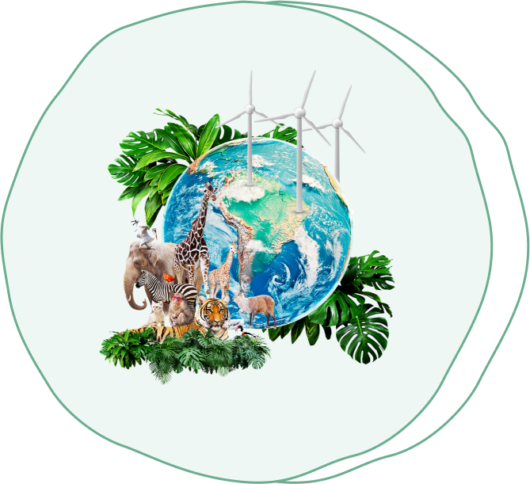
In the Spring of 2021, AGO began working with renowned author and activist Paul Hawken. Regeneration was about to hit the shelves, and the goal of the collaboration was to figure out how to bring its bold vision to as many people as possible: end the climate crisis in one generation by tapping into the human instinct to protect the things we love.
Working with Hawken on Project Regeneration was a transformative experience for everyone on the AGO team. In the course of the project, we talked to climate scientists, activists, educators, and leaders of Indigenous communities. We read books by “renegade economists,” conservationists, and rewilding experts. We listened to podcasts and talks with philosophers, technologists, and futurists. We realized there was a lot about the climate and environmental movements that we needed to unlearn and relearn. We were inspired.
Following are five ideas we encountered that fundamentally changed the way we think about climate action and the future.
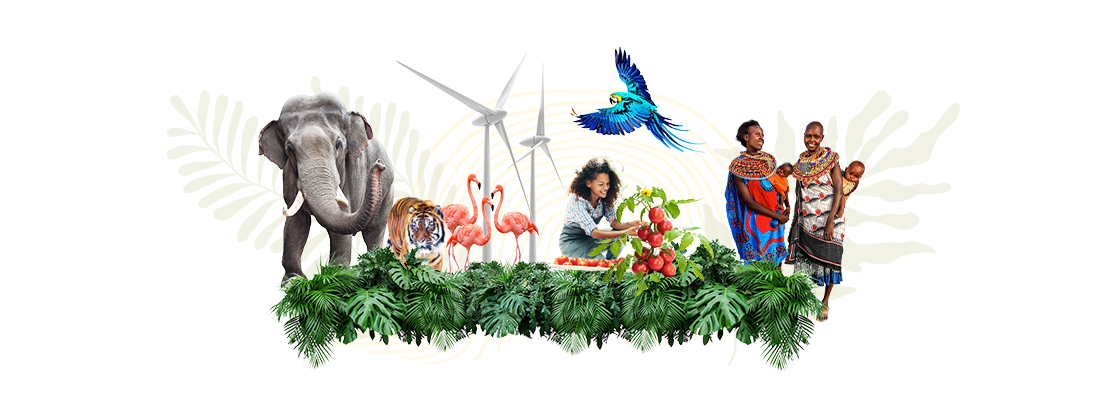
-
1
One: In order to solve our problems effectively, we must appreciate their interconnectedness
"When we try to pick out anything by itself, we find it hitched to everything else in the Universe.” —John Muir
Read moreToggle accordion item
“When we try to pick out anything by itself, we find it hitched to everything else in the Universe.” —John Muir
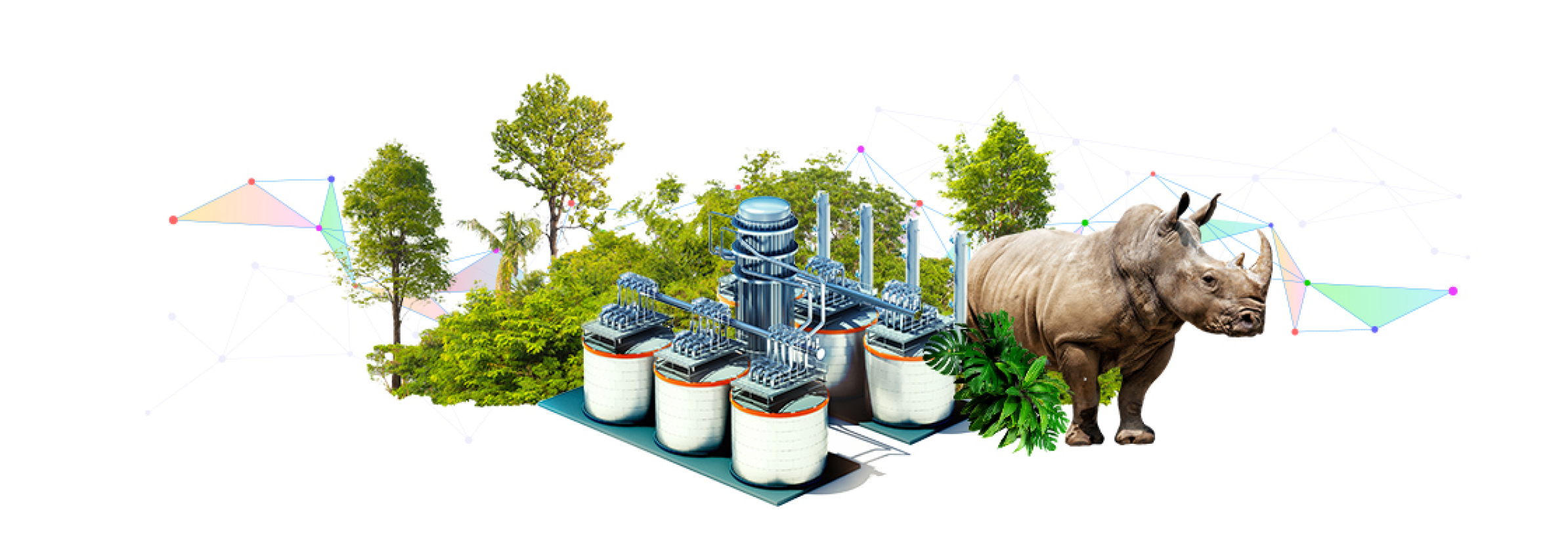
In a recent interview, Tyson Yunkaporta, author of Sand Talk, was asked about the main difference between Indigenous and non-Indigenous thinking.
“Indigenous thought is highly contextualized and situated in dynamic relationships with people and landscape, considering many variables at once,” he said. “Non-Indigenous thinking is good at examining things intensively in isolation.”
Yunkaporta opted for the diplomatic phrasing “good at,” but this tendency of non-Indigenous peoples to examine—and make decisions about—things in isolation has created a lot of complex 21st century problems and continues to create more. The problems we face are interconnected. When we try to narrowly resolve one without taking the whole picture into consideration, the unintended consequences are often severe.
In a recent episode of the podcast Your Undivided Attention, host Tristan Harris and social philosopher Daniel Schmachtenberger discussed a few examples of this. One was an effort to stop elephant poaching in a region of Africa. The effort included laws and fences, but didn’t address the poverty of the poachers who relied on the black market to survive, or the macro-economy that had created their poverty. The elephants were better protected, but the poachers moved on to rhinos and gorillas—both more endangered than the elephants. The second was how Google and Facebook successfully optimized their search functions and ad models but ended up, in Schmachtenberger’s words, “breaking the social solidarity and epistemic capacity”—the ability to tell fact from fiction—“necessary for democracy.”
The important takeaway here is that in order to tackle our current problems effectively, we’re going to need a more holistic approach. We can address climate change, but we must also address the systems that perpetuate global economic inequality. And we can address the rampant disinformation destroying our ability to distinguish between fact and opinion, but we must rethink the extractive relationship we have with the technologies in our lives. We can’t approach each problem as though it exists in isolation, because it doesn’t. And if we treat the symptom instead of the root cause, we will just keep creating new, different problems.
Further reading:
Sand Talk by Tyson Yunkaporta
Your Undivided Attention: “A Problem Well-Stated is Half-Solved”
The Consilience Project
Show less -
2
Two: Our success as a species relies on our ability to cooperate
“Sapiens can cooperate in extremely flexible ways with countless numbers of strangers. That’s why Sapiens rule the world.” —Yuval Noah Harari
Read moreToggle accordion item
“Sapiens can cooperate in extremely flexible ways with countless numbers of strangers. That’s why Sapiens rule the world.” —Yuval Noah Harari
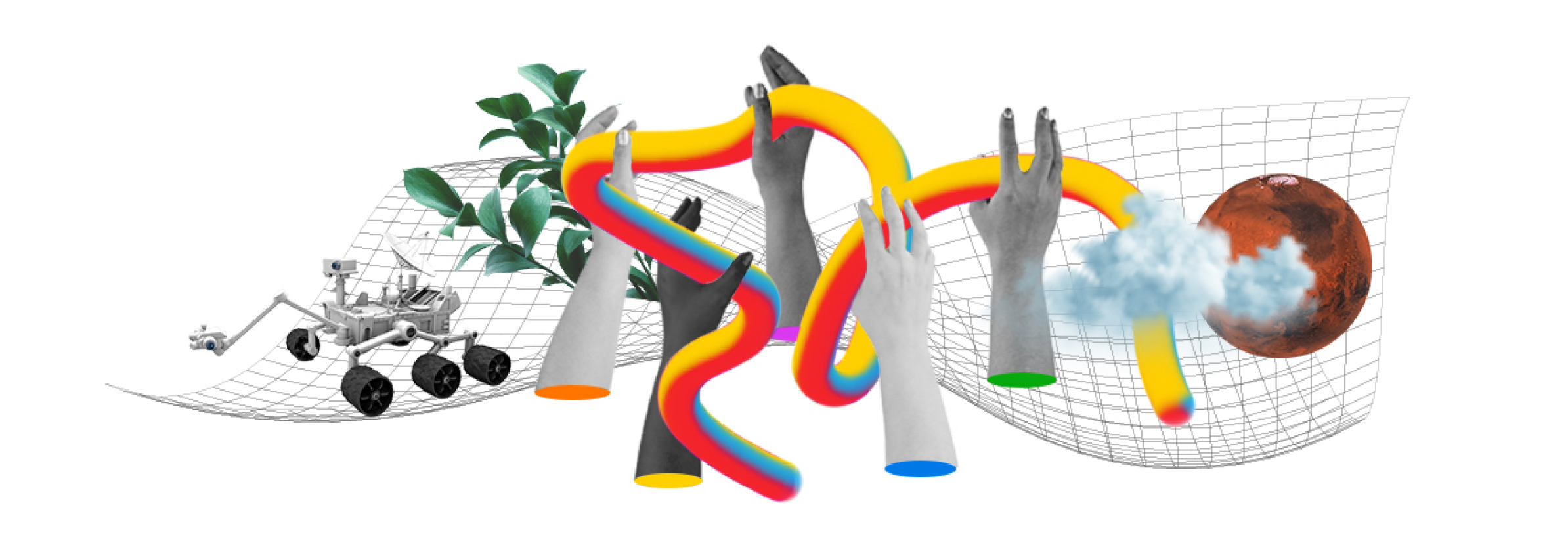
We humans currently hold the fate of the entire world—and all its glorious flora and fauna—in our hands. We didn’t gain our edge over other species because we’re the biggest, the strongest, or even because we’re the most intelligent. Our great advantage was our ability to cooperate with each other.
Unfortunately, huge companies have put all of their engineering and algorithmic genius to work developing technologies that hijack our limbic systems, erode our capacity to focus, and make constructive conversations near impossible. These technologies have created a “crisis of attention” that’s making it difficult for humans to agree on which existential threats we face and take appropriate coordinated action to overcome them.
Johann Hari, author of Stolen Focus, summed it up neatly in a recent interview: “A society that can’t pay attention to issues together, that consists of addled people who are interacting primarily through mechanisms that make them angry, is a society that can’t solve its crises.”
The good news is that we aren’t trapped in this dynamic. We can decide—as individuals, as a society, and as a species—to reject this business model and pressure tech companies to build beneficial algorithms that instead foster constructive conversation and cooperation. Indeed, they already exist. This is within our power, if we can muster the personal will, the political will, and the focus to do it.
Further reading:
Stolen Focus by Johann Hari
Sapiens by Yuval Noah Harari
Recode Daily: “Why we can’t pay attention anymore”
Don't Look Up
Show less -
3
Three: We must learn to hold both our current despair and our vision of the future
“We live in the right now and it’s flawed, but we look ahead to a future that we can only imagine and begin to live that way in the present.” —Ngofeen Mputubwele
Read moreToggle accordion item
“We live in the right now and it’s flawed, but we look ahead to a future that we can only imagine and begin to live that way in the present.” —Ngofeen Mputubwele
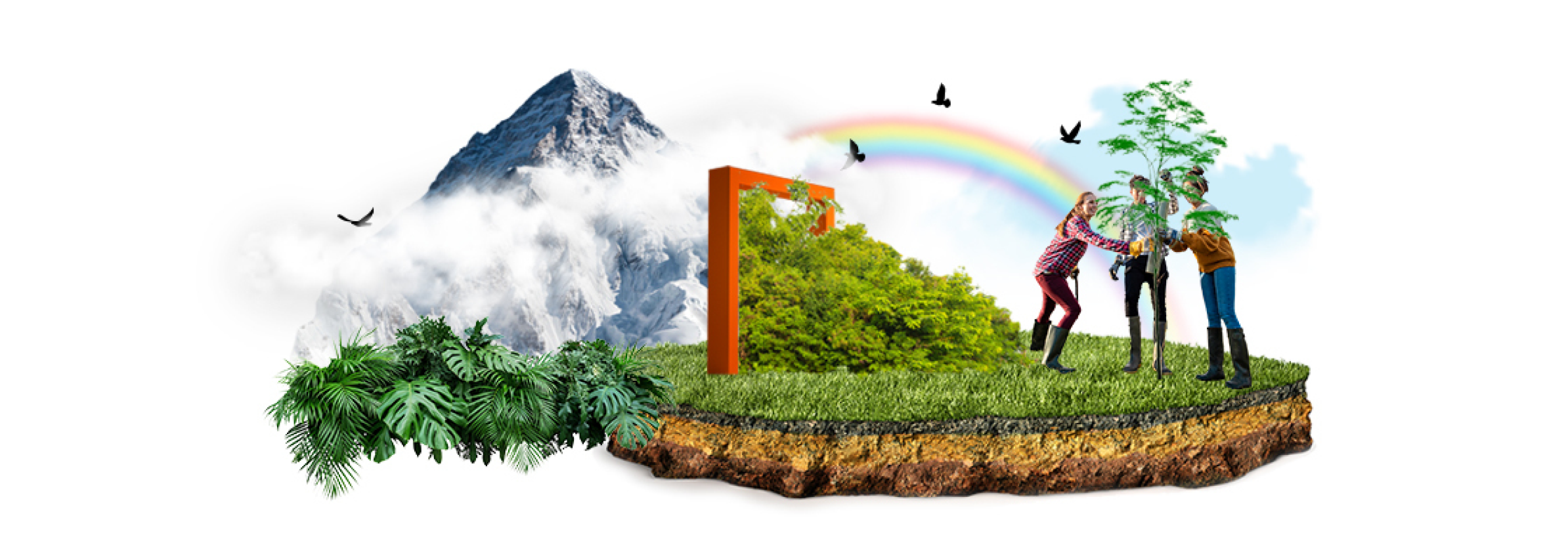
In a recent article titled “This Isn’t the California I Married,” Elizabeth Weil grapples with the memory of California as it exists in her nostalgic memory—resplendent with the magic of the natural world and her active, outdoorsy lifestyle—and California as it actually exists.
“Living in California now meant accepting that fire was no longer an episodic hazard, like earthquakes,” she writes. “Wildfire was a constant, with us everywhere, every day, all year long, like tinnitus or regret.”
This kind of nostalgia is something that is holding us back dramatically as we try to confront climate change and come to terms with life on a planet with more frequent and extreme weather events, a staggering loss of biodiversity, and more geopolitical instability. Futurist Alex Steffen calls this discontinuity.
“Discontinuity is a moment where the experience and expertise you’ve built up over time cease to work,” he tells Weir in the same article. “It is extremely stressful, emotionally, to go through a process of understanding the world as we thought it was, is no longer there. There’s real grief and loss. There’s the shock that comes with recognizing that you are unprepared for what has already happened.”
Meanwhile, younger Americans are experiencing a different kind of grief and loss: that of seeing the world exactly as it exists and fully understanding the implications.
Recently, Ngofeen Mputubwele, a producer at the New Yorker, did a podcast about millennial hopelessness and being a human at what feels like the end of the world. In a series of interviews and explorations of his own feelings as a queer Black millennial, Mputubwele determines that we must acknowledge grief in order to move past it—to hold the hopelessness and despair of the current moment in tandem with a vision of a better future.
“‘The already not yet’ is a concept in Christianity where Jesus will usher in a new heaven and earth but the kingdom of heaven is already here. You’re meant to hold the two ideas in tandem,” he says. “There’s a similar thought in queer theory of ‘futurity.’ We live in the right now and it’s flawed, but we look ahead to a future that we can only imagine and begin to live that way in the present.”
Climate activist and author Daniel Sherrell takes the idea a step further. He does feel despair, and he feels that no matter what he does, the impact will likely be minuscule. And yet. “If someone told me that you will spend the rest of your life coming together with people who share your values to try to create a polity and an economy that treats everyone with dignity,” he says. “I can’t think of a better way to spend a human life.”
Further reading:
The Snap Forward by Alex Steffen
New Yorker: Millennial Writers Reflect on a Generation’s Despair
Warmth: Coming of Age at the End of Our World by Daniel Sherrell
Show less -
4
Four: Better economic systems are possible
Toggle accordion item
“Enough is as good as a feast.” —Mary Poppins
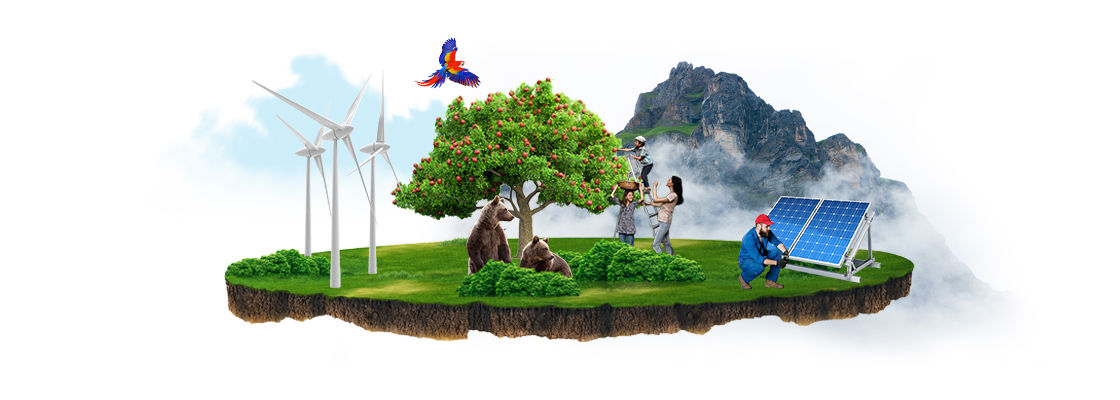
All of us live and die by the priorities of our economic systems. But what are those priorities? The health and happiness of life on planet Earth? The greatest good for the greatest number of people? Not exactly. Not yet.
Here we are on a planet with finite ecological resources, and yet our economic systems rely on eternal, exponential growth. Those of us who recognize the inherent flaws in this logic aren’t alone. As economist and philosopher Kenneth Boulding famously remarked, “Anyone who believes that exponential growth can go on forever in a finite world is either a madman or an economist.”
“The problem begins right on day one,” economist Kate Raworth explained in a recent episode of Your Undivided Attention. Economists are taught to narrowly prioritize the health of the market. Economics is about supply and demand. Price is the metric of concern. The health of humans, animals, and ecosystems doesn’t factor into the equation. “In the 21st century, we've got this absurd situation where our economic activity is causing the death of the living planet, and economists say that's an environmental externality.”
These systems—and the culture that has grown out of them—have a deeper problem: we’ve learned to confuse consumption with happiness. The result is chronic and worsening inequality. In wealthy countries, millions of people suffer and die from “diseases of affluence” while millions of people in the so-called “developing” world endure crushing poverty and food insecurity. The system isn’t even serving the super rich.
This is something economist Tim Jackson has written a lot about. People prosper when they have physical health, meaningful engagement in a community, relationships with family and friends. We can have an economic system that prioritizes these things. We can, he writes, have an economy that “replaces a culture of frenetic consumerism with an economy of relationships and meaning.”
Kate Raworth imagines the new, better economy in the shape of a donut: “The goal, in the simplest terms, is to meet the needs of all people within the means of the living planet. And suddenly, the shape of progress is no longer that 20th century mantra of growth, growth, growth. It's clearly on a different metric. It's balance.”
Further reading:
Doughnut Economics by Kate Raworth
Prosperity Without Growth by Tim Jackson
Post Growth by Tim Jackson
Show less -
5
Five: Small local actions have big ripple effects
“Ours is not the task of fixing the entire world all at once, but of stretching out to mend the part of the world that is within our reach.” —Clarissa Pinkola Estes
Read moreToggle accordion item
“Ours is not the task of fixing the entire world all at once, but of stretching out to mend the part of the world that is within our reach.” —Clarissa Pinkola Estes
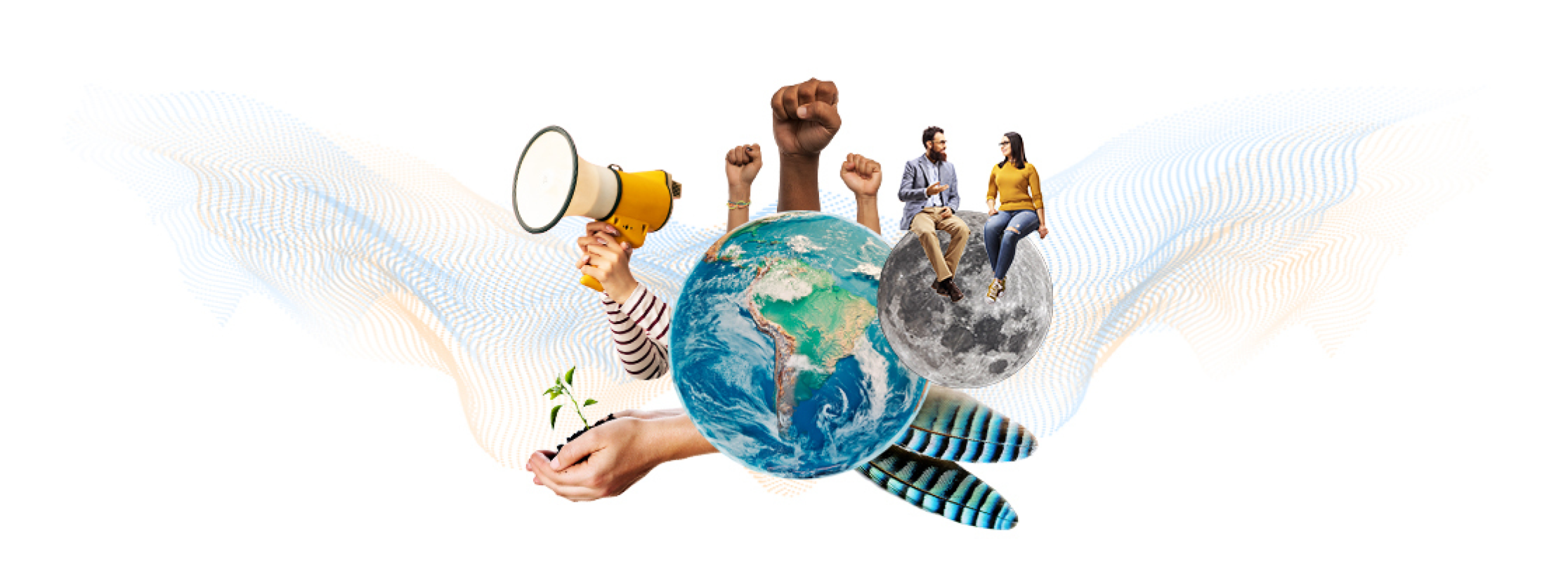
One of the most exciting ideas we encountered—and the idea that in some ways required the most fundamental shift in our beliefs about climate activism—is that the most effective thing we can do as individuals is to care about the things around us. It’s radically simple.
To be clear, caring isn’t passive. Caring means letting yourself be motivated to act by an urge to protect the things you love, whatever those things are—your kids and grandkids, vast blue skies full of songbirds, oceans teeming with wildlife, ancient redwood forests. It’s also about focusing on the things that are within your control instead of letting yourself be overwhelmed by all the things that are not. That could mean planting flowers at your local park, talking to the school board about providing students with healthier lunches, rewilding your backyard, or getting to know your neighbors.
In a famous Ted Talk, climate scientist Katharine Hayhoe points out that while approximately 70% of Americans believe climate change is real, fewer than a third discuss it, and only 25% said they hear about it in the news.
“The most important thing you can do to fight climate change? Talk about it,” she says. “Connect with people over shared values like family, community, and religion to help them realize that they, too, already care about a changing climate."
As more people care about climate change, they too take action. As more people talk about climate change, the more collective cultural priorities shift. The upshot is a global network of people acting locally, and governments yielding to increasing public pressure to take more meaningful actions.
“It’s important that everyone take action in every way they can. Part of taking action is voting, speaking truth to power, boycotts, influencing one’s peers,” Paul Hawken said in a recent interview. “The greater part of action is making change on the ground, in our communities, across our regions, in our companies, within our schools, at our homes, closets, and kitchens.”
In a recent interview with Doug Rushkoff for the Team Human podcast, author and activist Naomi Klein talks about being on a call with a bunch of middle schoolers in BC. They were discussing her latest book, How to Change Everything, and she began by asking the kids to share something they loved about the outdoors.
“They just flooded the chat. It was beautiful, it just poured out—their favorite animals, favorite hikes, mountain biking, paddling. We worked from there,” she says. “In a way, I feel like that’s a metaphor for how we need to organize. We need to organize from a place of love, and rootedness, and connection.”
Further reading:
Project Regeneration
Saving Us by Katharine Hayhoe
Team Human: Naomi Klein
“Do Not Lose Heart, We Were Made for These Times” by Clarissa Pinkola Estes
Show less
Sign up for our lightweight newsletter
Insights and resources for important work